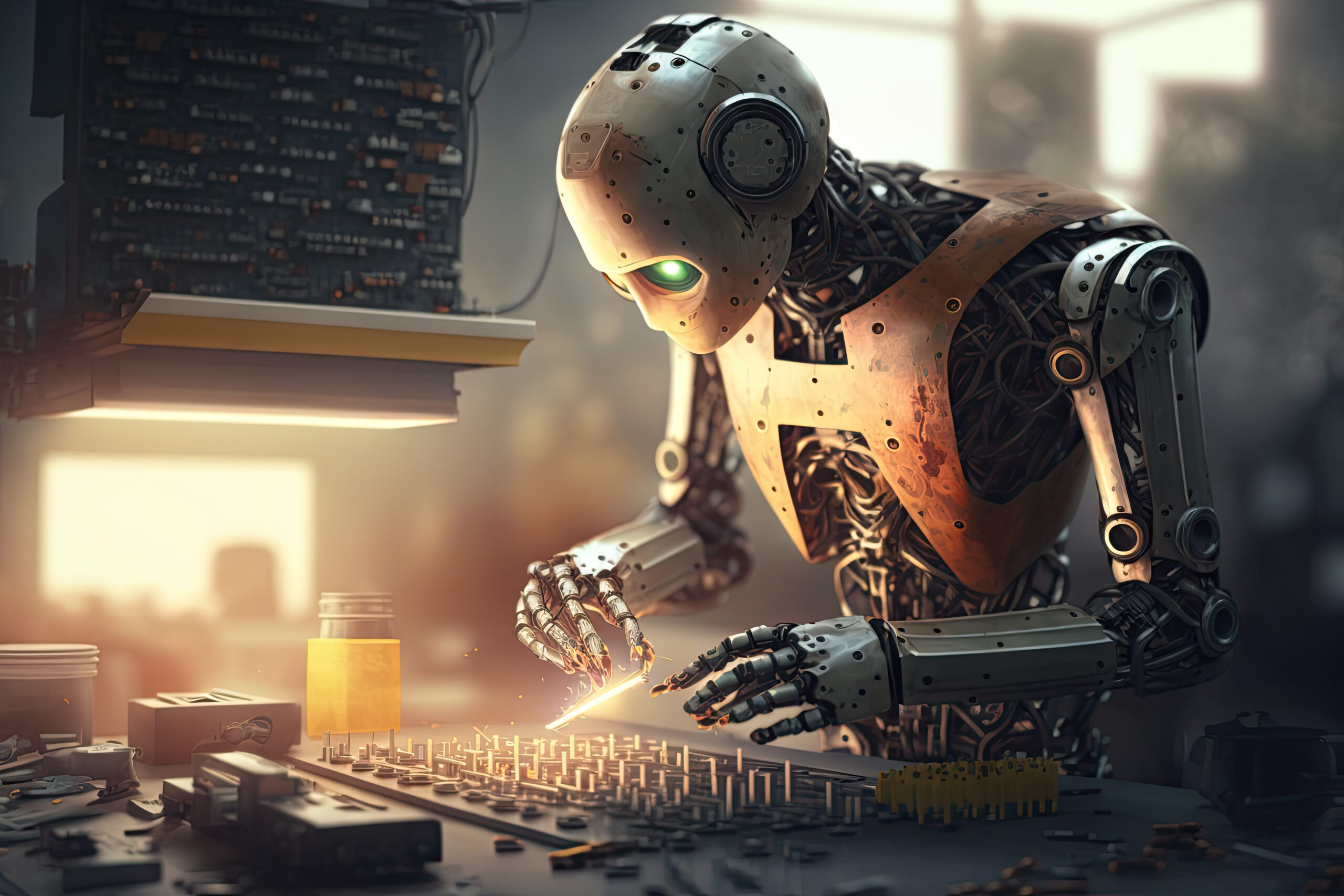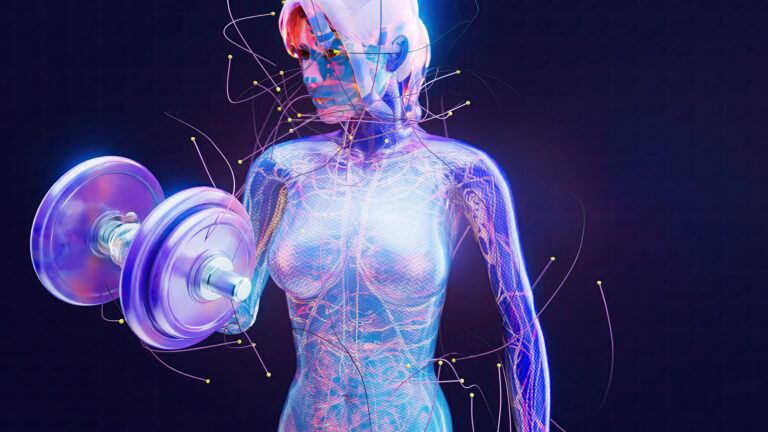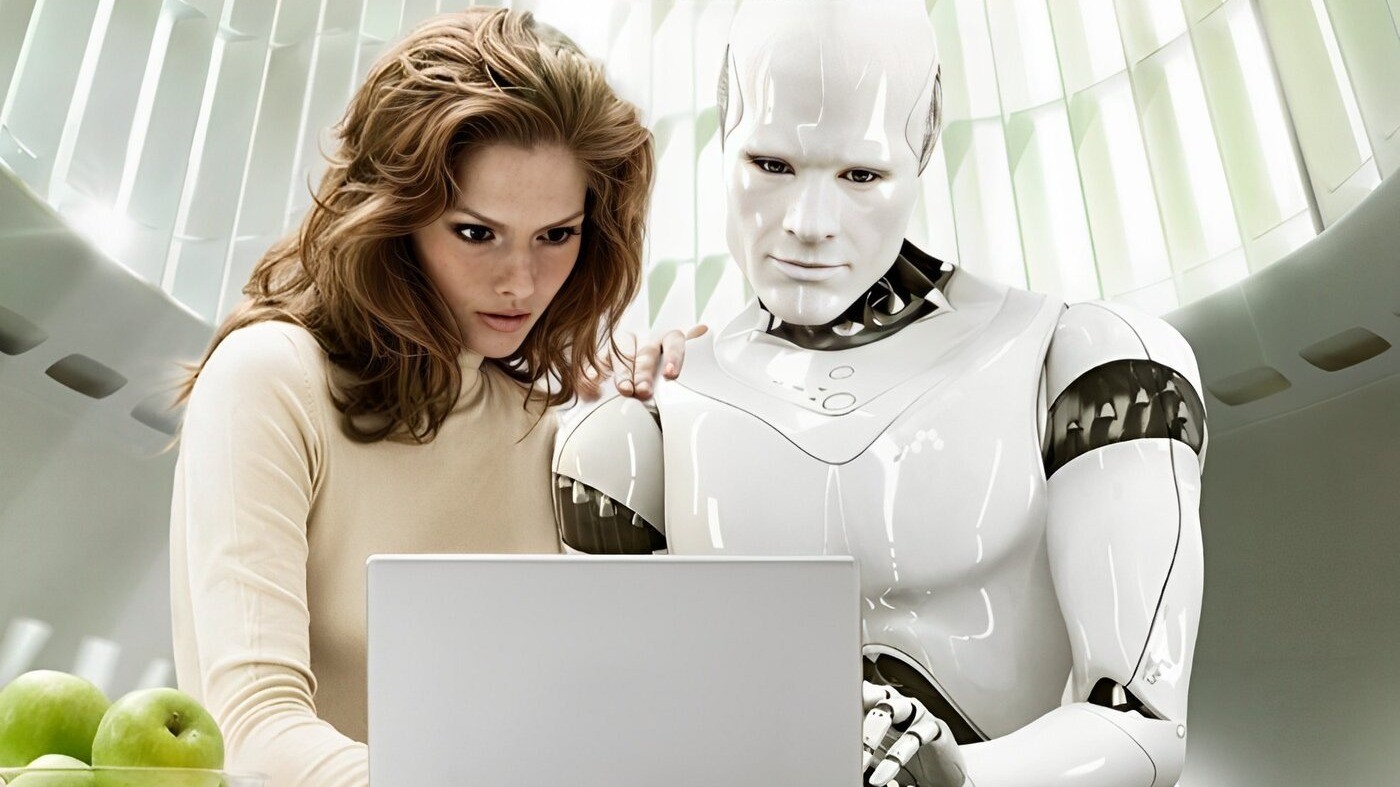The digital revolution never stops, and Artificial Intelligence (AI) has been a game-changer in many areas – and software development is no exception. From automating repetitive tasks to generating code and detecting bugs, AI has been transforming the way we develop and maintain systems, driving efficiency, quality and innovation at every step of the process. If you are a developer, project manager or simply passionate about technology, this article will show you how AI is reshaping software development and what trends are set to dominate the market in the coming years.
The New Era of Software Development
Software development has always been a dynamic field, where creativity and technology go hand in hand. In recent years, the emergence and evolution of Artificial Intelligence has accelerated this transformation, allowing intelligent tools to become true allies of programmers. AI is present from the project conception, helping to define requirements, through writing and reviewing code, to test automation and predictive system maintenance.
Imagine an environment where code is generated based on natural language descriptions, where algorithms detect and fix bugs before they cause problems in production, and where strategic decisions are made based on predictive performance and security analytics. This reality is getting closer, and AI-powered tools are redefining traditional development processes.
What is Artificial Intelligence Applied to Software Creation?
Artificial Intelligence in software development refers to the use of machine learning, deep learning, and natural language processing (NLP) algorithms and techniques to automate and optimize different stages of the development cycle. These technologies allow computers to learn from historical data, identify patterns, and perform tasks that previously required human intervention, such as:
- Code Generation: Systems capable of interpreting requirements and producing functional code, reducing the time spent on manual writing.
- Test Automation: Algorithms that automatically create, execute and evaluate tests, quickly identifying bugs and vulnerabilities.
- Code Review: Tools that analyze code for inconsistencies, suggesting improvements and ensuring adherence to quality standards.
- Predictive Maintenance: Solutions that monitor software performance and behavior in real time, predicting failures and optimizing maintenance.
AI Tools in Software Creation
Several tools and platforms are already transforming the way we develop software. Among the most notable, we can highlight:
1. Programming Assistants
Tools like GitHub Copilot and OpenAI Codex use advanced AI algorithms to suggest code snippets as you type. These assistants not only speed up the coding process, but also help you avoid common mistakes and adopt good coding practices.
- Real-Time Suggestions: By understanding the context of the code, these systems suggest intelligent completions and implementation alternatives.
- Continuous Learning: Based on developer feedback, these assistants continually improve, adapting to different programming styles and languages.
2. Test Automation
Test automation is an area where AI has shown amazing results. Tools like Test.ai and Applitools use AI to create and execute automated tests, identifying bugs and discrepancies that might otherwise go unnoticed in a manual review.
- Anomaly Detection: Algorithms monitor software behavior during testing and flag any deviations from expectations.
- Interface Testing: AI can simulate complex interactions with the user interface, ensuring that all functionalities are operating correctly.
3. Code Review and Refactoring
AI-powered code review systems like DeepCode and SonarQube with AI modules analyze large volumes of code to identify issues with security, efficiency, and readability. They suggest improvements that might not be obvious to the naked eye, helping developers maintain a high standard of quality.
- Pattern Analysis: Detects code patterns that could lead to future problems, enabling proactive intervention.
- Improvement Suggestions: Based on best practices, these tools offer recommendations for code refactoring and optimization.
4. Project Management and Predictive Analytics
AI is also revolutionizing the way we manage software projects. Predictive analytics solutions help estimate deadlines, identify risks, and optimize resource allocation, enabling more efficient and accurate management.
- Time Forecasting: Algorithms analyze historical and current data to more accurately predict the time needed to complete each stage of the project.
- Risk Management: Identify critical points in development and suggest preventive actions to mitigate risks.
Benefits of AI in Software Creation
The adoption of tools based on Artificial Intelligence brings a series of advantages that can radically transform software creation and maintenance:
1. Increased Productivity
By automating repetitive tasks and offering intelligent suggestions, AI allows developers to focus on more creative and strategic aspects of the project. This significantly reduces development time and speeds up product launches.
- Reduced Coding Time: With programming assistants that complete and correct code in real time.
- Test and Review Automation: Which minimizes the need for manual intervention and accelerates the feedback cycle.
2. Improved Code Quality
AI tools ensure that code follows quality standards, preventing common errors and improving long-term maintainability. With predictive analytics and automated review, software becomes more robust, secure, and efficient.
- Early Error Detection: Automated review systems identify inconsistencies before they become critical issues.
- Adoption of Good Practices: Refactoring and optimization suggestions help keep the code clean and well-structured.
3. Innovation and Competitiveness
The ability to generate code and automate processes based on real data allows companies to innovate faster. This agility becomes a competitive differentiator, especially in markets where speed to market and product quality are essential.
- Rapid Adaptation to Market Demands: Projects can be adjusted and optimized in real time based on feedback and analysis.
- Exploring New Business Models: AI opens up new opportunities for creating bespoke software tailored to specific niches and emerging needs.
4. Cost Reduction
By automating processes and improving code quality, costs for rework, maintenance, and bug fixes are significantly reduced. In addition, efficient development processes contribute to better resource allocation and faster return on investment.
- Fewer Errors, Lower Costs: Early identification of problems reduces spending on emergency corrections.
- Human Resource Optimization: Developers can focus on innovation while routine tasks are automated.
Practical Examples and Success Stories
1. Code Automation with GitHub Copilot
GitHub Copilot is one of the most notable examples of AI applied to software development. Integrated into Visual Studio Code, it suggests code snippets as developers type, based on billions of lines of public code. The tool has been widely adopted by professionals looking to increase productivity and reduce common errors.
- Success Stories: Developers report that Copilot speeds up writing repetitive functions and provides creative solutions to complex problems.
- Impact on Productivity: Many professionals see a significant reduction in coding time and an improvement in the quality of the final code.
2. Automated Testing with AI
Tools like Test.ai have revolutionized the way software testing is conducted. Using machine learning algorithms, these solutions can identify failures and anomalous behavior in applications much faster than traditional methods.
- Practical Cases: Software companies that adopted these systems were able to reduce the testing cycle by up to 50%, freeing up time and resources for other areas of development.
- Operational Benefits: Test automation not only increases software reliability, but also reduces the incidence of bugs in production.
3. Code Review with DeepCode
DeepCode is a tool that automatically analyzes source code for vulnerabilities and bad practices. Using artificial intelligence techniques, it compares the code with recognized patterns and suggests improvements that can prevent future problems.
- Concrete Results: Companies that have implemented DeepCode have reported a reduction in critical bugs and an increase in adherence to security and quality standards.
- Continuous Improvement: The tool adapts over time, learning from new practices and updates from the developer community.
Challenges and Ethical Considerations
Despite the advances and benefits, the application of AI in software creation also faces challenges and ethical issues that need to be addressed:
1. Transparency and Explainability of Algorithms
AI algorithms can sometimes act like “black boxes” – that is, making decisions without developers fully understanding how those conclusions were reached.
- Need for Explainability: Developers and managers need tools that not only automate processes, but also allow them to understand and audit AI decisions.
- Impact on Trust: Transparency is essential to ensure that AI-based solutions are trustworthy and can be used in critical environments.
2. Data Security and Privacy
AI tools rely on large volumes of data to train their algorithms.
- Protecting Sensitive Information: It is crucial that companies implement rigorous security measures to prevent sensitive data from being exposed or misused.
- Compliance and Regulation: Data usage must comply with data protection laws, ensuring user privacy.
3. Impact on the Labor Market
Automating routine tasks can, in some cases, lead to a reduction in demand for certain functions.
- Professional Requalification: It is essential to invest in training so that professionals can adapt to a scenario where AI is a complementary tool, not a substitute.
- Growth Opportunities: While some functions can be automated, new opportunities will emerge in areas of supervision, development, and maintenance of AI-based systems.
The Future of Software Creation with AI
As AI evolves, its role in software creation will become even more comprehensive and sophisticated. Some trends we can expect in the coming years include:
1. Full Integration into the Development Cycle
AI tools will be seamlessly integrated into all stages of development, from project conception to ongoing maintenance.
- Agile and Iterative Development: AI will enable a more iterative approach, where constant feedback helps to adjust and optimize the final product in real time.
- Total Automation: With the evolution of programming assistants, many routine tasks can be completely automated, freeing developers to focus on innovation.
2. Real-Time Personalization and Adaptation
AI-based solutions will be able to offer personalized recommendations and adaptations according to the project context and user behavior.
- Adaptive Tools: The software can self-adjust based on performance and usage data, always ensuring the best possible experience.
- Predictive Trend Analysis: Integration with Big Data and BI systems will allow companies to anticipate market demands and adjust their development strategies.
3. Human-Machine Collaboration
The synergy between human intelligence and AI capabilities will create a collaborative environment where each part complements the other.
- Creative Assistance: AI will not replace the developer, but will work as a partner that enhances creative and analytical capacity, enabling innovative solutions.
- Hybrid Work Environments: AI-based collaborative tools will integrate geographically distributed teams, facilitating communication and knowledge exchange.
A New Horizon in Software Creation
Artificial Intelligence is profoundly transforming software development by automating processes, improving code quality, and driving innovation. With programming assistants, automated testing systems, and predictive analytics tools, AI is not only increasing developer productivity, but also redefining standards for system quality and security.
As we enter a new era of software development, it is essential that companies and professionals adapt and invest in training and integrating these technologies. The future of software development will be marked by close collaboration between humans and machines, where creativity and efficiency go hand in hand to create increasingly robust and innovative solutions.
If you are a developer, manager or technology enthusiast, now is the time to explore, learn and implement the AI tools that are revolutionizing software creation. Prepare for a future where the limits are defined only by imagination and the ability to innovate – a future where AI will be the main ally in transforming challenges into opportunities and taking your career and projects to new heights.








